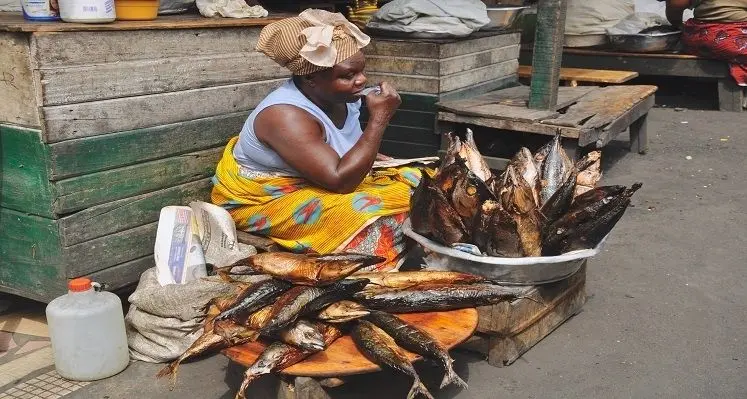In Dar es Salaam, Tanzania, a pivotal event was unfolding: the Africa Women’s Fish Processors and Traders Network (AWFISHNET) Consultative and Capacity Building Workshop on Leadership, coinciding aptly with Women's month
From March 21 to March 23, 2024, 41 women hailing from various corners of the continent gathered with a unified objective: To bolster the position and contribution of women in the fisheries sector towards the continental agenda of eradicating hunger in Africa and alleviating poverty. Their role as active participants in the fisheries sector and broader African society was acknowledged as indispensable.
AWFISHNET, established in 2017 with support from the African Union-Interafrican Bureau for Animal Resources (AU-IBAR) during the Fisheries Governance 1 Project (FishGov 1), had emerged as a symbol of empowerment for women within fisheries. The workshop signified a crucial stride in advancing the network’s objectives of fostering gender equality, advocating responsible fish trade, and seizing market opportunities for Africa's economic advancement.
Originating from insights garnered during continental trainers' workshops in 2016, where women championed a unified platform to bolster intra-African fish trade, AWFISHNET embodied the aspirations of African female fish processors and traders. With over 70% of the continent’s fish processors and traders being women, the imperative for gender and youth equity in the sector resounded, echoing the aims outlined in the Policy Framework and Reform Strategy for Fisheries and Aquaculture in Africa (PFRS) and the Malabo Declaration.
The workshop served as a cornerstone in AWFISHNET's trajectory, aiming to fortify the network's institutional leadership, enhance service delivery, ensure self-sustainability, and propel growth. Participants, comprising members of AWFISHNET’s executive, representatives from national and regional chapters, and development partners, were engaged in a dynamic agenda crafted to cultivate skills, assess progress, and plot a strategic course ahead.
Key objectives of the workshop encompassed the initiation of new AWFISHNET National Chapters, a scrutiny of the network’s strategic blueprint, an evaluation of organisational capacity, leadership training, strategic deliberations, and the blueprint for forthcoming symposiums and assemblies. These endeavors were poised to yield tangible outcomes, including the establishment of new chapters, bolstered leadership proficiencies among members, and a coherent roadmap for future initiatives.
Madam Beyene Ateba, the then president of the AWFISHNET Bureau, noted that the workshop arrived at an opportune moment to refine the leadership capacities of members, fostering heightened empowerment and influence in Africa's fisheries and aquaculture sector.
The objective of enhancing AWFISHNET's leadership capacity was to address gender and youth-based barriers for sustainable development in the sector. The speech further highlighted the Republic of Tanzania's commitment to fostering the participation of women and youth in agri-business opportunities, as evidenced by hosting this workshop.
Dr Jovice Mkuchu, who inaugurated the workshop on behalf of the minister of livestock and fisheries, Tanzania, acknowledged the pivotal role of women in Tanzania's fisheries sector, with over 60% engaged in post-harvest activities and trade. Their contribution to national and continental food security, wealth creation, and employment often went unheralded due to gender-based hurdles. She emphasised Tanzania's prioritisation of women and youth empowerment, exemplified by supporting AWFISHENT's establishment and hosting its headquarters and national chapter. AWFISHENT was envisioned as a robust network ensuring gender equity within the fisheries sector, in alignment with national, regional, and continental policies. This Capacity Building Workshop on Leadership was pivotal for advancing this objective. She urged all participants to actively engage, learn, and share knowledge to fortify their National Chapters, enhancing the socioeconomic status of women and youth in their respective countries.





